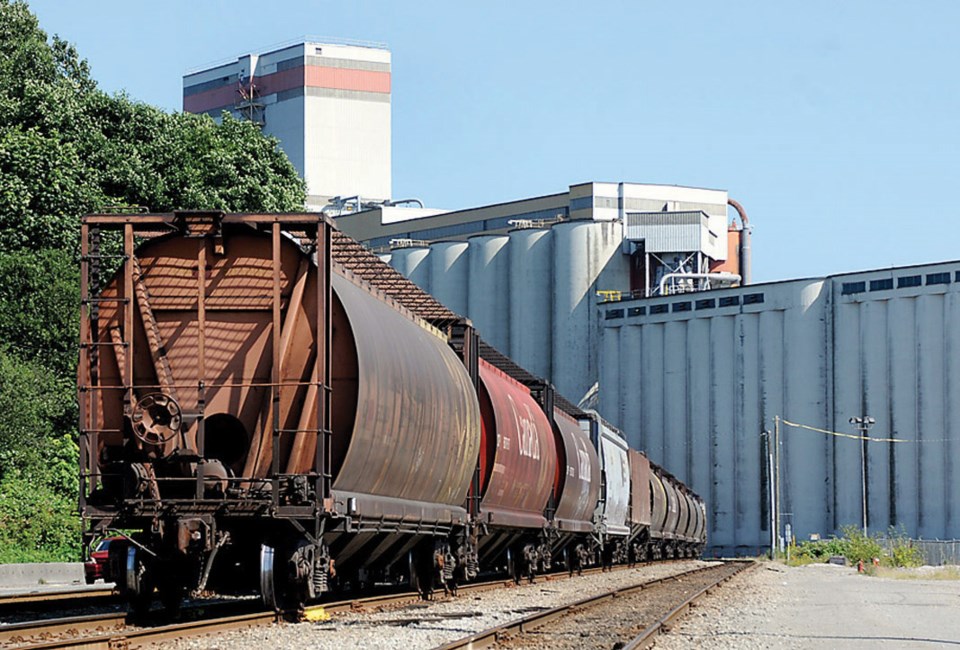Port Metro Vancouver is on its way to posting a record year for handling cargo, owing largely to increased output from North Vancouver's coal and grain terminals.
PMV released its mid-year report on Tuesday, showing six-per-cent growth over the same period last year.
"The drivers of growth for the bulk exports in particular are coal, grain and potash. Of course they're all quantities handled on the North Shore. Coal is up about nine per cent overall. Grain, five per cent and potash, 26 per cent," said Robin Silvester, PMV's president and CEO. "The two grain terminals, (Richardson
International and Cargill Canada) and Neptune Terminal must be having a good year, which is good news."
Silvester attributes the growth to continuous demand in the Chinese market and slight increases in capacity at the North Shore's terminals.
"Even with talk of China slowing down a bit, it's still a big economy and it's still growing at a pretty strong rate and thus the metallurgical coal and grain and potash are all in demand," he said.
But with Neptune and Richardson already having applications to expand their operations approved by the port, and the Low Level Road project making room for more rail lines, the real growth in shipping from the North Shore is yet to come.
Richardson is in the engineering phase of a $120-million expansion of its grain silos to add 54-metre (17-storey) high silos stretching 172 metres, which will hold another 80,000 tonnes of grain. Neptune is planning to double its coal handling.
While the approval process at council and the construction impacts of the Low Level Road project have left many North Vancouver feathers ruffled, the tangible benefits beyond increased economic activity will soon be plain to see, Silvester said.
"I think once it's finished, the community will see the benefits of the project much more clearly with the Spirit Trail and bikes lanes and obviously that potentially dangerous slope being fully stabilized," Silvester said.
In the last year, the port has drawn protests from environmental activists who accused PMV of being a handmaiden to climate change for its role in expanding coal exports destined for boilers in Chinese factories. But it is unfair to put the blame on the port, Silvester said, as it has no role in deciding what commodities Canada trades with other nations.
And the port's own environmental record is stellar, Silvester added.
"We operate a carbonneutral organization. We have had a lot of accolades for the work we've done to improve the environmental performance of the supply chain and reduce environmental impact. So we are absolutely doing our part, in fact doing it much more than many individuals and organizations," Silvester said.
And when it comes to problem of rising sea levels and unpredictable weather that climate change brings, no one is without sin, he added.
"Lets face it: things like carbon emissions and climate change are down to everyone. It's everyone driving cars, going in airplanes just as much as it is the export of coal," he said.



